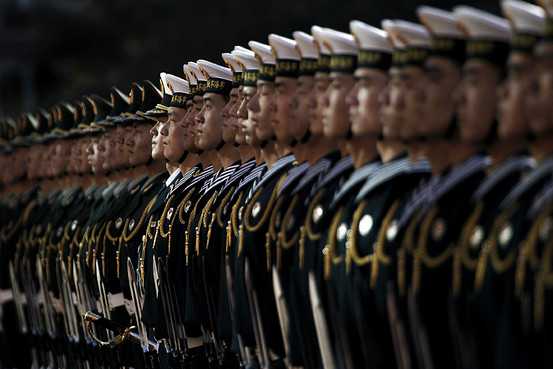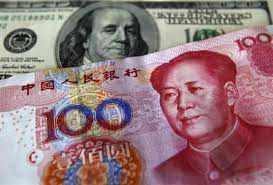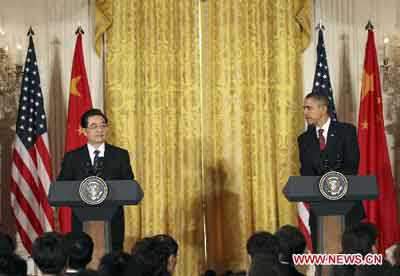
UNITED NATIONS — American exports surged last year to reach impressive new highs. Despite the recession, over $1.8 trillion dollars in U.S. goods were shipped worldwide. But before anyone thinks about popping the champagne corks to celebrate these new commercial successes, the U.S. Commerce Department also announced a dangerously high $498 billion trade deficit, representing an almost 33 percent increase which dampens the effervescence of the rebound.
American exports are booming for many reasons. A gradual global economic recovery, the quality of the products, and a weak dollar which makes the items more attractive, are among the reasons. So too are a number of Free Trade Agreements (FTA) with key global partners. Given the Obama Administration’s politically stated goal of doubling exports, there’s reason for initial optimism. Trade partners and patterns illustrate so very much about international relations well beyond the business bottom line.
East Asia’s growing economic weight brings the region enhanced political clout and global gravity. As recently as 1990, seven of America’s top fifteen export destinations were European. As one would expect the United Kingdom, Germany, France, Netherlands, Belgium, Italy and Spain were on the list. So too were Japan, South Korea and Taiwan. Back then, the People’s Republic of China was number 18. But fast forward twenty years and look at 2010. Five European countries (UK, Germany, Netherlands, France, Belgium) made the list but new players abound. The “new world trade order” has Canada, Mexico, China, Japan, and the United Kingdom in the top five lineup. Italy has been supplanted by Singapore.
Now let’s look at America’s imports. In 1990, four European countries (Germany, UK, France and Italy) were among the top fifteen. The top five still included Canada, Japan, Mexico, Germany and Taiwan. Fasten your seat belts please! In 2010, European countries made up five of the top fifteen sources of imports But the People’s Republic of China has shoved aside Canada, for first place, so the new top five list reads, China, Canada, Mexico, Japan and Germany.
Equally by 2010, China became the world’s second largest economy, pushing Japan into third place.
That the China Trade has swamped American markets, devastated industries, and decimated jobs is glaringly obvious. While American businessmen are gloating over a record $92 billion in exports to the Mainland in 2010, the USA imported $365 billion in products from the People’s Republic. Thus Washington’s trade deficit with Beijing hit a dazzlingly dangerous $273 billion and that’s in a recession! Looking at it another way, this is $273 billion sloshing around in China’s coffers gives Beijing the bling to keep up its global raw materials buying binge.
Major American exports to China include commercial aircraft, semiconductors and sophisticated industrial machines.
By now many readers may be saying and “what about India.?” All the hype about India overtaking China, the Dragon versus the Tiger, etc. Well last year India became the USA’s 14th top source of imports, just behind Nigeria. But look at the numbers. India imported $19 billion in goods from the U.S. while exporting $29 billion to the U.S. The trade deficit was just over $10 billion for the year. Looking at it another way, the U.S./PRC trade deficit in December alone was over $20 billion.
To illustrate how things have changed in less than a generation, tiny but entrepreneurial Singapore (pop 5 million) now has larger two-way trade with the USA than does Italy (pop. 60 million). In today’s world high-tech items seem to surpass fine foods, wines and fashion. Clearly South Korea remains one of the USA’s top bilateral trading partners. In 2010 Korea was our 7th largest importer as well as exporter. Impressive indeed.
Now at long last the Obama Administration has revived an earlier plan by former President George W. Bush to sign a FTA with South Korea. According to the free market oriented Cato Institute, a free trade pact with South Korea would promote both prosperity and security. The U.S./Korea Business Council adds that an additional $35 billion in exports and 345,000 American jobs would emerge from the package, yet to be ratified. Economic power is tilting towards East Asia and away from traditional West European partners. This allows Asia a growing commercial advantage as well as political weight in the global economic order.
John J. Metzler is a U.N. correspondent covering diplomatic and defense issues. He writes weekly for WorldTribune.com.
www.worldtribune.com, February 14, 2011






